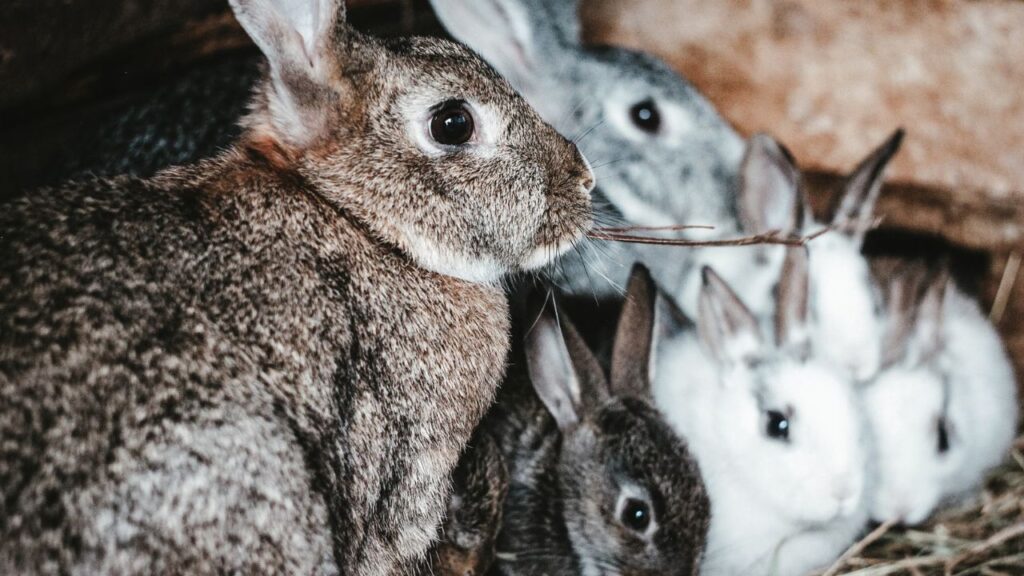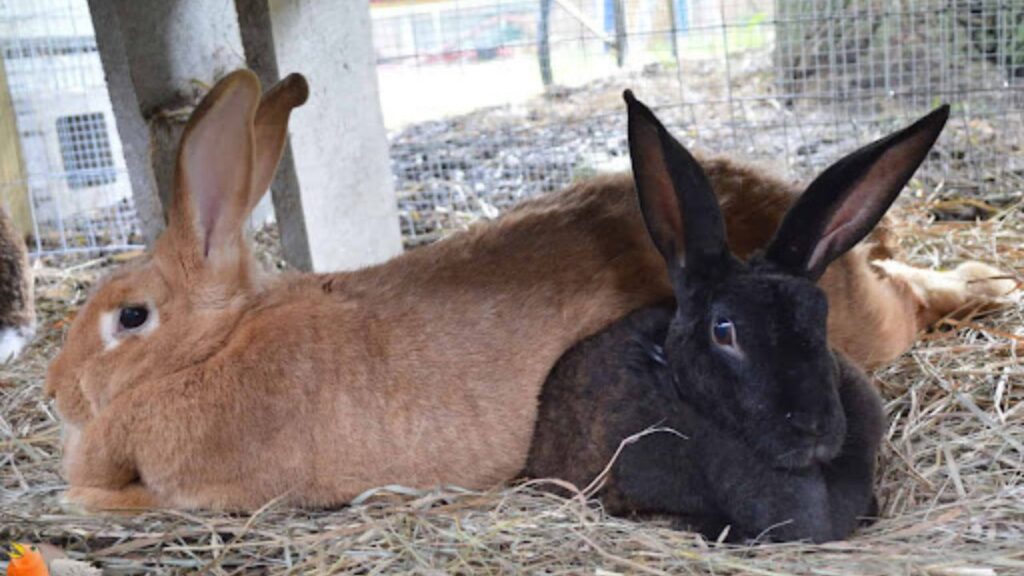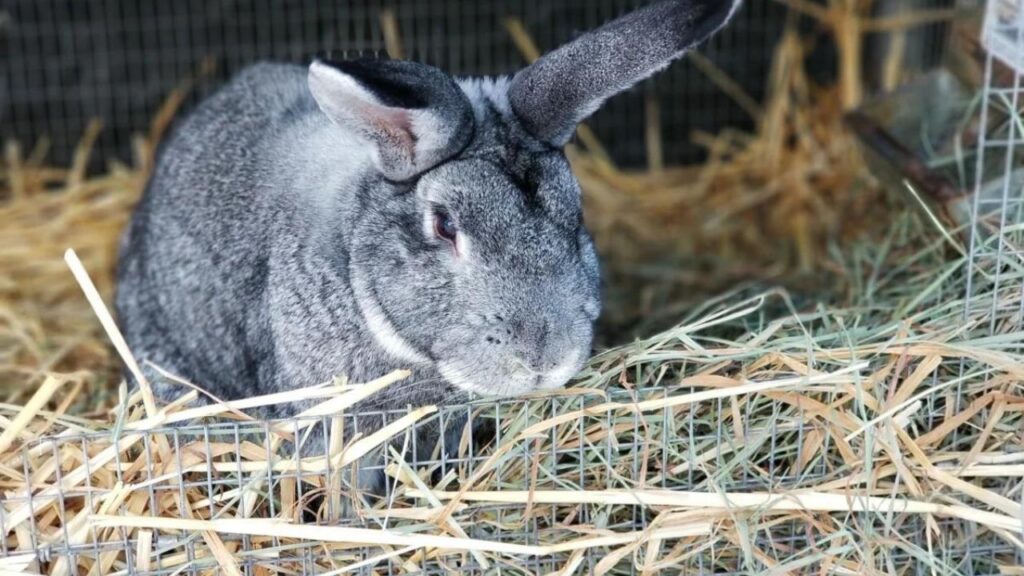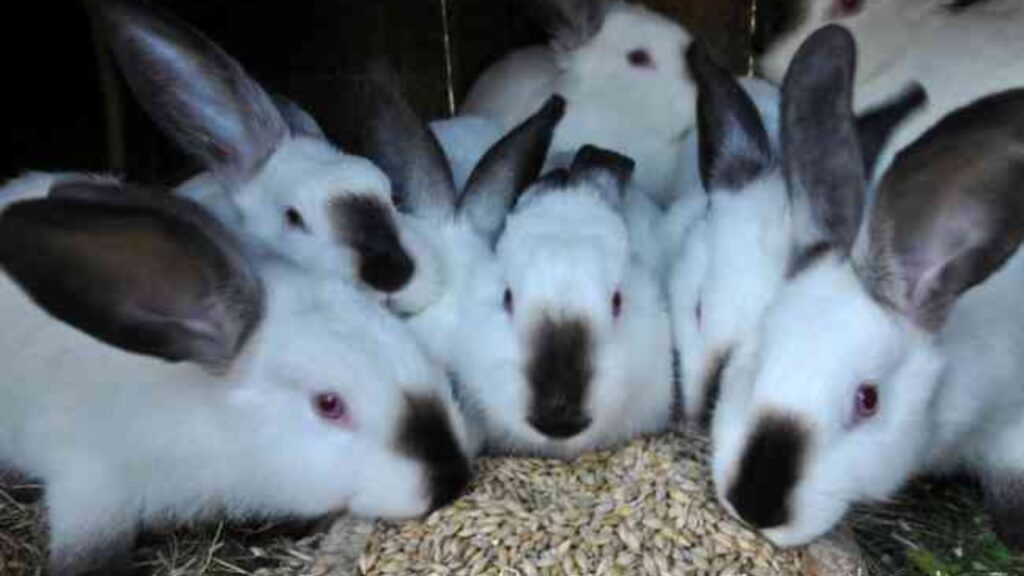Benefits of Keeping Meat Rabbits
We may have overlooked one of the most compelling arguments for raising your own meat rabbits, and the comfort and satisfaction of raising a well-raised and harvested animal that is humanely raised to provide essential nutrition and sustenance to your family.
To be honest there will always be some people who disagree with the meat producer but when you can confidently and forcefully declare that you know what your meat is made of and how it was raised and treated when it is hard to defend food grown from an unknown factory.
So this makes it more clear that rearing rabbits is the greatest form of fish and there is a real basis and rationale behind doing so.

What Nutrients Are in Rabbit Humans?
The health benefits of rabbit meat are numerous. Like other animal meats, rabbit meat is high in protein, although it has less fat than beef.
100 grams of rabbit meat contains 29.1 grams of protein, an essential component of protein that acts as a building block for your skin, muscles, hair and nails.
Vitamin B12 is essential for the synthesis of new red blood cells and digestion and can be found in meat and dairy products. You can get plenty of protein, vitamins, and minerals without consuming too much of the bad fat that comes with other meats.
Selenium Most adults need 55 micrograms per day of this immune-boosting and thyroid-healthy vitamin. A 100-gram portion of rabbit meat provides 38.5 micrograms of selenium, making it an excellent mineral.
Is it safe to eat rabbit meat?

Despite the fact that rabbit meat can be safely consumed like any other animal food when fully cooked, and is almost always eaten by humans, opinions on the topic of raising them vary greatly among people around the world.
Since chickens are kept as pets in many countries, eating them can be unsanitary for the general public and animal rights advocates. Caution: As they are social animals, it is preferable to keep them in groups rather than in small individual cages, although this may be expensive and impractical for small farms.
How many calories are in rabbit meat?
For comparison, 100 grams of lean sirloin steak has 177 calories and 100 grams of rabbit meat can be compared to a thicker cut of beef such as rib eye steak which has 291 calories per 100 grams.
Advantages of Keeping Meat Rabbits

Less time to harvest meat:
Rabbits mature quickly and are ready for slaughter, although preferences vary, but two common weights and ages at which rabbits are harvested are ten to twelve weeks old, or five pounds live weight, or 16 weeks old, or seven to eight pounds of live weight.
In three months if you have an average litter of eight to ten kits, you should have at least 20 to 25 pounds of mass. If you grow to soy weeks, you should have thirty to fifty pounds of mass.
Low total high protein white mass:
The protein composition of rabbit meat is reported differently by different sources due to the lack of popularity of the meat due to a lack of research and the lack of testing of different suppliers and products compared to popular meats such as chicken and beef.
On the low end, rabbit meat has a protein content of 22 to 23%, however some sources such as the USA Department of Agriculture report that rabbit meat has a protein content of up to 29%, the highest protein level of any meat or fish by many sources.
Off-grid growing and feeding:
Most people feed their meat chickens with grower pellets which are great but the best thing about raising meat chickens is that they can be fed only on vegetables and grasses that you can plant and gather in addition to sprouts that are used as fodder.
There are too many possibilities to list them all here but rest assured that it is completely feasible to raise meat without buying any commercial feed.
Hardy and cold tolerant:
It’s not that rabbits are perfect or that you won’t suffer damage but when you use quality breeding stock and proper handling damage is minimized. There are ways to contain and minimize losses in your rabbit.
Can thrive in any environment or location:
They can stay where you live.Every place has a breed of meat rabbit.Big eared breeds are better at shedding heat and surviving in hot climates.There are long haired breeds for colder and more variable climates. Domestic meat rabbits can live and grow in the same environment as wild rabbits.
Less time investment:
Proper rabbit care doesn’t take much time.Twenty minutes a day can care for thirty cages and fifty years.
Local farm animal regulations may not apply:
Of course you should check your local laws and regulations, but since most places consider rabbits pets and don’t distinguish between meat and pet rabbits, you probably don’t have to worry about laws and zoning changes. Meat rabbits as a food source can be raised almost unnoticed if well kept.
Ideal animals to nurture through gardens:
Along with growing other aspects of gardening and homesteading, garden produce can be used to maintain and feed rabbits that occasionally provide fertilizer for the garden.
What are the health benefits and disadvantages of eating rabbit meat?

Pros Because rabbit meat has a medium flavor that can be flavored and used in a variety of recipes like stews and stir-fries, it’s heart-healthy and won’t raise your cholesterol or cause heart problems because it’s a lean protein that’s palatable to most people.
Cons There are mainly psychological drawbacks to eating rabbit meat. Even if you’ve never had one as a pet, you may balk at the concept of eating something that looks like a pie. None of this bothers you. If you live in the area, you may not be able to visit a small Gujar store that carries unusual meats.
Also Read: How Much Does a Pet Rabbit Cost
